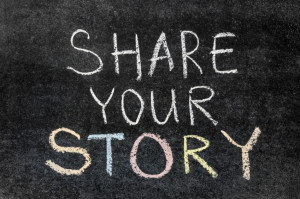What may have been at the heart of the sentiments I heard about how historians who work beyond the professoriate are better placed to know the publics they want to write for and reach comes down to the types of field work different historians perform.
Wanted: 21st-Century History Job
 What kind of job are you looking for?
Every so often I receive an e-mail, tweet, or in-person question about whether I am seeking a history job and if so, what type of job I would like.
What kind of job are you looking for?
Every so often I receive an e-mail, tweet, or in-person question about whether I am seeking a history job and if so, what type of job I would like.
I sincerely appreciate your concern for my well being and your support of my work.
Usually, I am unable to provide a straight answer because the type history job I would like to have does not exist, yet.
In this post, you will discover the type of work I would like to pursue for a history organization or academic department and the type of historical work that I think is necessary as we move further into the 21st century.
Job Description Must Haves
My ideal job would allow me to pursue the mix of academic and public history work I am presently doing.
Historical Research and Writing
I LOVE conducting archival research. I believe that the best way to understand the past is to use the historical record.
Like many historians, I am driven by questions and the hunt for information. Each trip into the archive is a quest to reveal something new or overlooked about the past.
I also love to write. I enjoy the challenge of sifting through the evidence, contextualizing it, and shaping what I have found into a coherent article, book chapter, or blog post. It’s through writing that I find my most exciting ideas. Writing also provides a great opportunity to convey the past to the present.
 Collaborative Work Environment
Collaborative Work Environment
The historical profession in the United States requires a closer collaboration between academic and public historians.
Academic historians do not work alone. Public Historians share the academic desire to present high-quality, well-researched history.
Each group possesses skill sets and expertise that when combined has the power to transform what we know about the past and the ways we convey it to the world.
Together both groups of historians can cultivate wide public awareness about the past and convey history in a way that makes it as relevant to the present as we know it to be.
Our cooperative efforts to show the relevancy of the past to the present will ease all historians' ability to access federal, state, and private funding and will increase history class enrollment.
Experiment with New Methods of Conveying History
Historians need to adapt faster and better to the changes in our forward-looking and tech-savvy society.
I love books; I hope to write several throughout my career, but the place of the book in our society has changed. People still read books and magazine articles, but far more consume information via blog posts, podcasts, internet videos, and social media updates.
There are so many new and exciting ways to consume information, which means that there are so many new and exciting ways to convey history. We need to adjust the way we communicate history to conform to our new reality.
I love blogging and digital exhibits, but presently, I am bullish on podcasting.
Podcasts allow historians to tap into two important human desires: Hear stories and accomplish something during normally unproductive periods.
 Humans love to hear stories. Scientists have proven that we use stories to train our brains; they teach us how to think, perceive the world, and provide lessons about how we can solve problems.
Humans love to hear stories. Scientists have proven that we use stories to train our brains; they teach us how to think, perceive the world, and provide lessons about how we can solve problems.
Historians know how to tell stories and podcasts provide a way for us to convey the successes, failures, and issues of the past in an innate and very human way: orally.
Podcasts also provide listeners with a feeling of productive accomplishment. They can listen to podcasts and learn about history at times when they normally can’t be doing something else, like when they need to walk the dog, commute to work, or go for a run.
Additionally, the intimacy of podcasting allows listeners to form a connection with the storyteller. Listeners develop a virtual bond (dare I say friendship) that feels very real with the podcasters they listen to and this relationship leads them to feel vested in the podcaster, their work, and their message.
What could be better for professionals who seek to improve society by creating awareness about the lessons of the past?
Few other methods of conveyance offer the same opportunity to make history as relatable to the present as podcasts.
With that said, we live in a fast-changing world and I would like to work for an organization or department that recognizes that fact and is willing to experiment with other new technologies that promise the ability to cultivate wide public awareness about the past.
Public and Professional Interaction
I would like my future employer to support and provide time to meet with both non-specialist history lovers and professional colleagues.
Historians study the human-made past. Therefore, it is important that whatever organization or department I work for supports opportunities to interact with the public either through programs, tours, or other events.
 Each year I give about six tours of Boston that focus on the American Revolution. These tours allow me to connect with people who love history. They also provide me with a better understanding about what non-specialist history lovers know and don’t know about the past. This knowledge makes me a better historian.
Each year I give about six tours of Boston that focus on the American Revolution. These tours allow me to connect with people who love history. They also provide me with a better understanding about what non-specialist history lovers know and don’t know about the past. This knowledge makes me a better historian.
I also find great intellectual and social enjoyment in professional conferences. I enjoy learning about what my colleagues are researching and what challenges they face in conveying history.
Additionally, I would welcome the opportunity to attend conferences and collaborate with others who experiment with new media and work in marketing.
Like it or not, all historians need to be able to market the importance of history, it is part of cultivating a wide audience and making history relevant for non-specialists.
Job Description Wish List
Digital Database Access
If I am going to discuss what my dream job would be, I might as well mention the fact that great database and library access would be a plus.
 I have cobbled together access to important historical databases and ILL privileges through the Boston Public Library and Boston Athenaeum, but there are other databases I would love access to.
I have cobbled together access to important historical databases and ILL privileges through the Boston Public Library and Boston Athenaeum, but there are other databases I would love access to.
Ability to Work Remotely, at Least Occasionally
We live in the 21st century and I would like to work like a 21st-century professional. I would love the opportunity to work in an office with colleagues nearby, but I also enjoy the freelance lifestyle.
It is nice to know that when Tim comes home and says “Would you like to go to Germany in two weeks,” I can go with him. Typically I work half days on these trips and use the other half of the day to visit historic sites an take in a different culture. These trips always provide me with a new perspective and make me a better person and historian.
Summary
In summary, my ideal job would involve historical research and writing, a work environment that encourages greater collaboration between academic and public historians, opportunities to experiment with conveying history through new media, and opportunities to interact with colleagues and non-specialists at conferences and events.
I have yet to see this type of hybrid academic/public history job offered.
However, when history organizations and academic departments finally post these types of hybrid jobs the historical profession will make a great and much needed leap into the 21st century.
I am glad to belong to a progressive and adaptable profession, but I often wish we had the ability to adapt more quickly.
 What About You?
What About You?
What is your ideal history job?
Are you already working in it? If so, please share your story.
Part 1: Megan Marshall on Writing History with Arguments
[simpleazon-image align="right" asin="054424561X" locale="us" height="500" src="http://ecx.images-amazon.com/images/I/51Rcw6C-VlL.jpg" width="332"]On Tuesday June 10, 2014, I had the opportunity to hear Megan Marshall speak at an intimate gathering for writers. Marshall won the 2014 Pulitzer Prize for Biography for [simpleazon-link asin="054424561X" locale="us"]Margaret Fuller: A New American Life[/simpleazon-link]. Marshall discussed Fuller’s interesting life and read from her book. She also took time to answer questions. Marshall shared a number of insights and tips about writing.
In this 3 part series, you will discover how Megan Marshall approaches her narratives, handles the task of writing the biography of a person others have explored, and how she found her writing style.
In this post you will learn how Megan Marshall approaches her narratives.
Megan Marshall's Approach to Narratives
I posed the following question because I wanted Marshall to expound upon the remarks she sent to the “Writing American History Outside of the Academy” panel at the 2014 American Historical Association annual meeting. Marshall stated that she believes that historians’ reliance on argument limits their ability to write engaging histories.
How do you approach your narratives? If they don't have an argument, how do you find or express the point of your story?
Marshall began questioning historians’ reliance on arguments when her daughter came home from junior high school with a thesis project. The assignment required her daughter to write a 20-page research paper on any historical topic she wanted, but her paper had to have an argument.
The assignment made Marshall wonder whether her work in-progress, [simpleazon-link asin="0618711694" locale="us"]The Peabody Sisters: Three Women Who Ignited American Romanticism[/simpleazon-link], had an argument. Marshall believed that her daughter could make many arguments about Brook Farm or she could tell the story about the utopian community. Her daughter’s teacher believed that stories are not histories unless they have an argument. Marshall disagreed.
[simpleazon-image align="left" asin="0618711694" locale="us" height="450" src="http://ecx.images-amazon.com/images/I/51WF8YK6JYL.jpg" width="300"]Marshall believes that arguments hinder an historian’s ability to tell a story because they limit the historian’s ability to deviate from the point they need to make.
Marshall argued that people connect better with narrative histories filled with characters than they do with argument-driven histories.
For example, several people have approached Marshall after book talks and lectures to thank her for helping them understand Transcendentalism, an understanding they acquired through The Peabody Sisters. Marshall admitted that she cannot provide a good explanation of what the movement was, but that people have come to understand it through her book because her characters illustrate the movement at work.
Marshall offered that perhaps the problem with the historical field and why so many lay readers find academic histories inaccessible is because historians feel they have to make an argument rather then just tell a story. Marshall believes that all stories must have a point, but they do not need to have an argument.
Historians need to make the case for why they are writing about the history they have selected, but that reason does not have to be steeped in historiography or a theoretical framework. Historians could tell a story just because it is interesting and yields insight into what the past was like or how we came to be who we are today.
Conclusion
Marshall’s explanation of her views helped me to better understand and articulate why most readers will pick up a well-written, but poorly researched journalistic history book rather than a well-written, well-researched academic history book.
 Most readers want to learn about history through a story. Arguments restrict historians from delving into lives and details that create the stories readers want to read.
Most readers want to learn about history through a story. Arguments restrict historians from delving into lives and details that create the stories readers want to read.
What Do You Think?
Do you think arguments hinder historians' ability to tell good stories?

